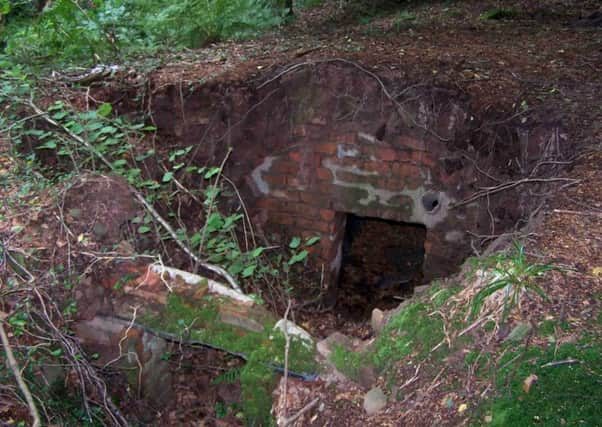Sussex's secret resistance during the Second World War


Following the evacuation back to southern England of allied troops from the beach at Dunkirk between May and June 1940, the risk of a German invasion of the British mainland was very real indeed. It was certainly real enough for the government to set up small, specialised patrols throughout the country, although many were concentrated along the south coast.
Each patrol was provided with weapons, ammunition and explosives at a time when these were in very short supply. The weapons and explosives would be stored in specially-constructed hideouts, generally built underground in secluded areas.
Advertisement
Hide AdAdvertisement
Hide AdThese highly-secret units, with a deliberately nondescript title, were under the direct supervision of GHQ.
Each patrol consisted of a maximum of 12 men and most of their activities would take place under the cover of darkness.
Contact was maintained with these scattered patrols through 12 intelligence officers, each having his own area of responsibility that included a number of different patrols and each responsible for specialist training.
These patrols, formed in the early years of the war, consisted of local trustworthy men with excellent knowledge of the area, such as farmers and gamekeepers, or who had specialised skills that would assist them to work undercover had the Germans invaded Britain.
Advertisement
Hide AdAdvertisement
Hide AdThey were to harass, snipe and sabotage enemy patrols, vehicles and communication lines as well as gather intelligence on the invading Germans and pass it on to the regular British forces.
The hideout for each patrol was known as an operational base or OB. As well as the supplies already mentioned, many were also stocked with food and water and had radio links to a manned observation post.
Along with nearby Warningcamp, North Stoke and West Stoke patrols, Arundel had its own patrol. Their OB was half a mile north of the Black Rabbit pub while a lookout was located on the edge of the chalk cliff behind the pub.
Two underground stores of food and ammunition were located in Rewell Wood, east of Arundel – one of these stores was occasionally used as OB.
Advertisement
Hide AdAdvertisement
Hide AdThe leader of the Arundel Patrol was Frank Penfold, owner of a local agricultural engineering firm.
If any of these men had been captured during an invasion, they would have likely been tortured and shot.
Hitler had already threatened the regular Home Guard with summary execution if he invaded.
All members had to sign the Official Secrets Act before joining the auxiliary units and many took this oath to the grave with them.
Advertisement
Hide AdAdvertisement
Hide AdIt was not until the 1990s, 50 years later, that some chose to speak about their involvement in these highly-secretive units. In many cases, their own families had no idea until then.
GHQ estimated that following an invasion, the life expectancy of a patrol was just two weeks but as we know, the German invasion, although planned by Hitler, never went ahead.
These brave volunteers were not to know this at the time and like the Home Guard (please put away any thoughts of Dads’ Army), I strongly believe they would have done whatever they could and fought ferociously against the Nazi invaders to protect Britain.
This is just a brief overview as I don’t want to give away too much about the local patrols prior to the forthcoming talk. With thanks to Stewart Angell.
Advertisement
Hide AdAdvertisement
Hide Ad• There will be a talk on The Secret Sussex Resistance by Stewart Angell, author of the book, in the ballroom of the Norfolk Arms at 7.30pm on Friday, April 13. Tickets are £8 each and are available from Sarah at The Book Ferret in Arundel High Street. All profits from this talk, organised by The Arundel History Forum, will go to the charity Combat Stress.
---
• Benefit from an ongoing discount on your paper by joining our voucher membership scheme. Once you’ve subscribed we’ll send you dated vouchers which can be exchanged for your paper at any news outlet. To save money simply click here.